EDITORIAL
Welcome to the first issue of 41st AEAA News. This is the first in a series of six daily newsletters dedicated to the 41st Association for Educational Assessment in Africa (AEAA) Annual Conference, hosted by the Educational Assessment and Examinations Service (EAES) in Addis Ababa, Ethiopia, from August 25-29, 2025. The goal of this newsletter is to provide an overview of today’s activities, which included welcoming delegates, conference registration, pre-conference workshops, the assembly of the EXCO, and a discussion on common frameworks for assessment in Africa.
Social events remain a cornerstone of conference life, and informal chatter suggests the program promises plenty to enjoy.
Meet the Conference Registration staff
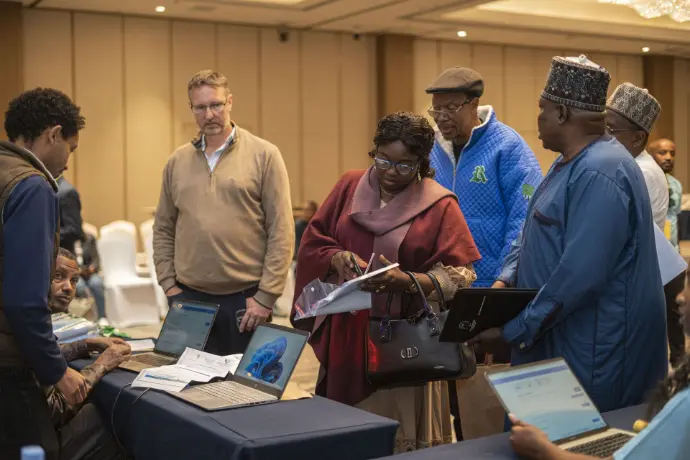
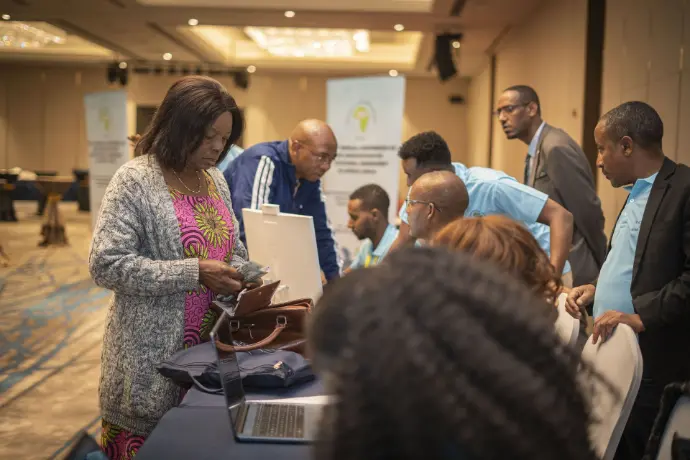
The logistics sub-committee successfully welcomed delegates on their arrival at Bole International Airport and shuttled them to the conference venue for registration. The day was marked by two significant pre-conference workshops, which were attended by experts from the EAES and delegates from several AEAA member countries
Workshop 1:
Tying up the loose ends
Delivered by Dr. Arnold, J. Brouwer, this workshop focused on the critical intersection between Competency-Based Assessment (CBA) and Informed Decision Making (IDM). Dr. Brouwer confirmed that CBA ensures students demonstrate mastery of skills and knowledge aligned with real-world demands, while IDM leverages reliable data to shape policies and teaching strategies. By integrating these two pillars, the workshop showed how educators and policymakers can create a robust system where assessment drives actionable insights, leading to more equitable and effective learning outcomes for all. Key areas of discussion included designing effective CBA frameworks, leveraging data analytics, and building capacity for educators and administrators.
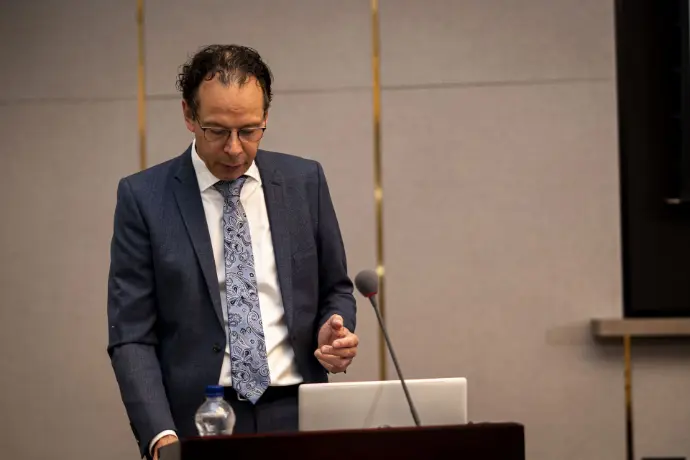
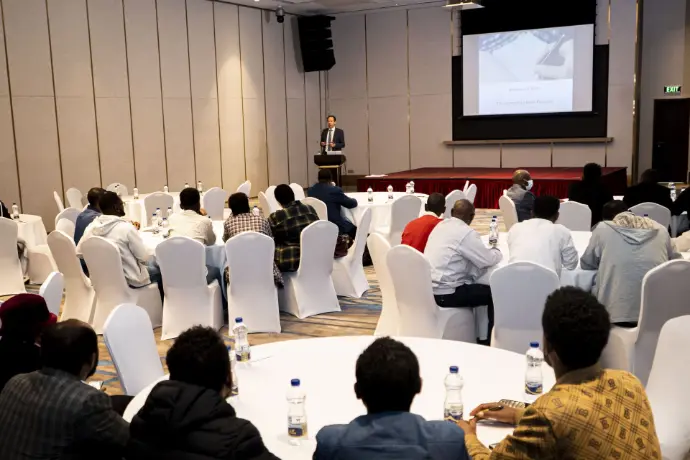
Workshop 2:
Assessment for Learning: Policy and Practice Implications for Scaling-up in African Schools
The workshop on Assessment for Learning (AfL) in African schools presented AfL as a formative tool that enhances learning through feedback, reflection, and student engagement. Its scale-up is hindered by limited teacher training and weak policy alignment. For effective expansion, policymakers should mandate AfL training, embed formative tools in national curricula, balance high-stakes exams with formative practices,
and establish robust monitoring and evaluation. In practice, AfL should be woven into daily lessons, supported by digital tools for real-time feedback, and involve parents, communities, and policymakers—despite challenges such as large class sizes, limited resources, teacher resistance, and insufficient incentives. Overall, AfL is pivotal for equity and quality in education and has strong scaling potential if policy, resources, and stakeholder engagement are aligned.
EXCO meeting
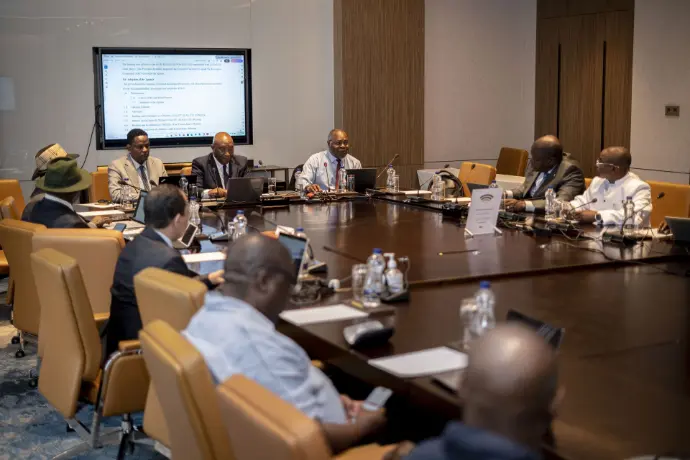
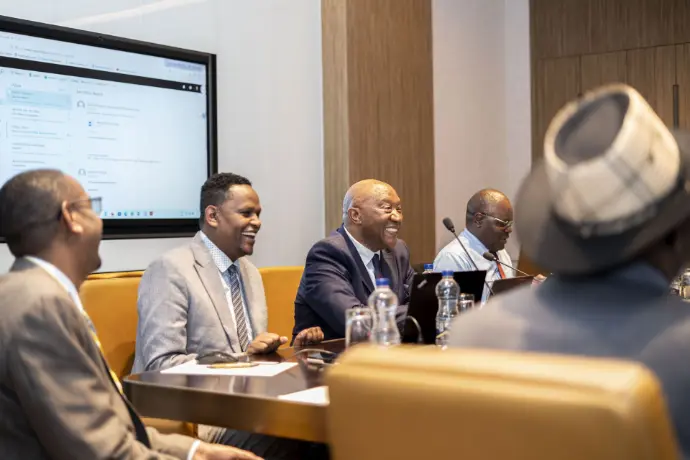
Leaders of EXCO during the discussion
During the cocktail night, delegate enjoying with African music.

